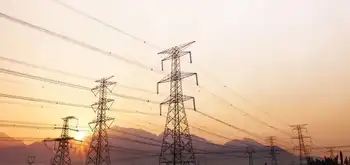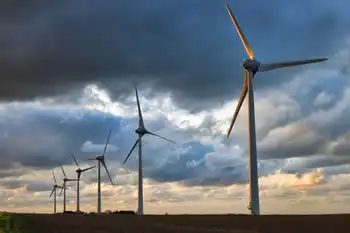Ohio regulators approve renewable energy rules
The decision by the Public Utilities Commission of Ohio came roughly a year after state lawmakers passed a landmark energy bill that requires 12.5 percent of electricity sold in the state come from renewable sources by 2025 and another 12.5 percent come from so-called "advanced" energy sources, such as clean coal and nuclear power.
The renewables requirement is being phased in, starting at 0.25 percent this year and escalating each year afterward, with specific mandates for solar energy.
About 30 states have so-called renewable portfolio standards. In Ohio, many companies had been waiting to see the fine print before getting into the market.
"Because of the actions of the PUCO today we are going to see more in-state production, more jobs created and more low-cost energy efficiency secured for the state of Ohio," said Nolan Moser, air and energy program director for the Ohio Environmental Council.
"We are interested in building wind in Ohio and already have acres under lease, and that has been done with the expectation of favorable rules," said Paul Copleman, a spokesman for Iberdrola Renewables, based in Portland, Ore. The company has wind projects in several states, including Illinois and Pennsylvania.
All parties involved in the rulemaking, from utilities to green energy producers, have 30 days to ask the commission to reconsider the rules. And the panel has 30 days to respond. The rules also will be subject to review by a legislative committee.
Alternative energy advocates have questioned how a cost cap excusing utilities from the renewable energy requirements would be put into place. The cap was put into the landmark legislation to protect consumers from large price spikes.
The commission approved rules that would partially excuse utilities from the requirement when the overall cost of providing electricity, including renewable energy, amounted to 3 percent more than the cost of providing electricity without including alternative sources. Companies would still have to provide the greatest amount of renewable energy up to the 3 percent cap.
Utilities had wanted to be able to compare the individual cost of producing electricity with traditional sources, such as coal, directly with renewable sources. Currently, burning coal is the cheapest way to produce power and the industry proposal would make it easier to trigger the cap.
Utilities will have to submit annual reports on their efforts to comply with the requirements.
Officials with FirstEnergy Corp., the nation's fifth largest investor-owned electric system, have been reviewing the rules. FirstEnergy has 4.5 million customers in New Jersey, Ohio and Pennsylvania.
"We are committed to implementing successful programs that meet the goals related to efficiency and alternative energy resources," said spokeswoman Ellen Raines.
The commission was criticized by some, including state Sen. Jon Husted — the Republican who, as House speaker, had a major role in writing the energy law — for taking nearly a year to approve the rules. The commission said its workload from evaluation rate plans under the new law had slowed its progress.
Related News

Some old dams are being given a new power: generating clean electricity
TORONTO - As countries race to get their power grids off fossil fuels to fight climate change, there's a big push in the U.S. to upgrade dams built for purposes such as water management or navigation with a feature they never had before — hydroelectric turbines.
And the strategy is being used in parts of Canada, too.
The U.S. Energy Information Administration says only three per cent of 90,000 U.S. dams currently generate electricity. A 2012 report from the U.S. Department of Energy found that those dams have 12,000 megawatts (MW) of potential hydroelectric generation capacity. (According to the National Hydropower Association,…




